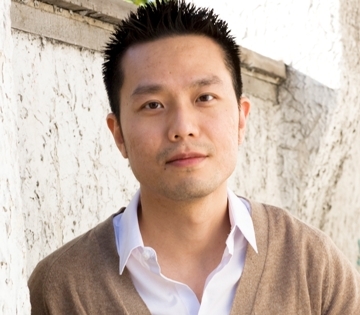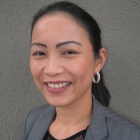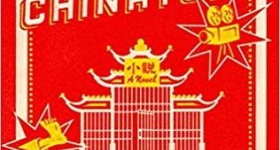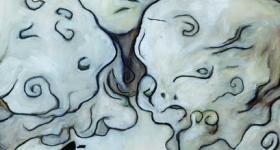This Burns My Heart heralds the arrival of an exciting new talent. Written by Samuel Park, a Korean American writer raised in Sao Paulo, Brazil, who now teaches in Chicago at Columbia College, the novel spans South Korea’s recovery from war in the 1960s to its rapid modernization in 1972. Alongside such upheaval unfolds one woman’s own personal rebellion as she struggles to break free from traditional expectations and establish her own career path. The novel examines the consequences of her one wrong decision, a decision that would wreck her life and prevent her from being with her one true love.
The protagonist, Soo-Ja, is a beautiful, ambitious 22-year old from a wealthy family who is keen on moving to Seoul from her town in Daegu to become a diplomat. Although she is accepted into the program, Soo-Ja’s father forbids her to enroll because of taboos against young single women living alone in the city and therefore neglecting their filial piety by abandoning the duty to marry. Soo-Ja’s mother, however, in a most subtle moment of female persuasion, suggests that Soo-Ja find “[s]omeone weak” who will allow her to have a career. Soo-Ja then decides that “she’d have to trick her future husband.”
With much expediency, Soo-ja decides to marry Min, the most persistent and attentive of her suitors. They bond after exchanging letters while Min is in Seoul protesting against Syngman Rhee’s government. Min later enlists Soo-Ja’s help in locating the mother of a young boy who was unjustly killed. Soo-ja complies, cooperating with Yul, a protest leader toward whom Soo-ja feels an overwhelming attraction. Yul protects Soo-ja throughout their search and ends up saving her life during a violent protest.
On the eve of her wedding to Min, shortly after their first encounter, Yul professes his love for Soo-Ja and asks her to marry him instead. Soo-Ja refuses, choosing to remain with a man she thinks she can manipulate due to his ardent affection rather than taking a chance at true love. It is at this point that Soo-ja's life unravels, and the novel begins.
Soo-ja later discovers Min’s deception in marrying her for money. So, instead of tricking a man as she originally thought, she is tricked into enduring her husband’s lack of career prospects, the cruelty of her in-laws whom she must now serve, and a life of poverty. Yul, on the other hand, becomes a successful doctor who marries a shallow woman. Soo-ja, afraid of losing her daughter, is prevented from leaving Min due to Korean divorce laws that award custody to men.

Photo of the author by Ryan Bakerink
While Soo-Ja’s early interactions with Yul seem too brief to convincingly give way to love, Park’s later descriptions of chance encounters between them are utterly heartrending, and the longing between the star-crossed lovers is so acute as to keep any reader’s heart hoping and sinking with every turned page. Although Soo-ja resigns herself to a life apart from Yul, thoughts of what-could-have-been become a refuge from her suffering: “There would be no action, no doing; but he’d be there. He’d be, and that could be the world.”
Park is expert at setting the stage for their meetings; the events that occur in the backdrop of these encounters function to mirror and amplify the emotional carriage of Soo-Ja and Yul’s quiet exchanges. For example, when the couple meets during the eve of the lunar festival, they chance upon janggo street musicians alternately drumming and chanting, as if echoing the beating of the couple’s hearts and the running thoughts in their minds. As the music crescendos, Soo-Ja and Yul allow themselves one fleeting touch as they stand side-by-side in the crowd:
Yul’s surprisingly warm hand brushed against Soo-Ja’s, and she quivered at his touch. They both kept staring straight ahead, their hands obscured by the crowd and their own bodies. Yul pressed a single finger, his middle finger, against the center of her palm, caressing it, almost burrowing into it. Her fingers closed in a little, and her hand was like the yellow forsythia whose trumpet-shaped petals can furl and unfurl, opening up to the sun, but then closing, to protect itself from the cold winds.
The layers of alignments -- between their inner experiences and outer surroundings, between their feelings -- speak to the strong connection shared by Soo-Ja and Yul, which makes their inability to be together even more tragic. Like the delicate forsythia that opens and closes in response to the elements, Soo-Ja too must equivocally surrender to her feelings out of great love for Yul, then retreat as a result of duty and obligation to her marriage. Park’s novel is replete with such resonant imagery and rich, subtle suggestion. Like the caress of Yul’s finger against Soo-Ja’s palm, Park gestures with light, sensuous strokes. His musical and graceful prose unfolds with the patience and care of first-time lovers.
That the sad events in the novel do not succumb to melodrama is due to the philosophical inquiry underpinning the narrative about the choices we have and the decisions we make. How do we account for different variables affecting decisions? How do we balance custom and duty with personal desires? As exponential potentialities and missed opportunities haunt us, Soo-Ja wonders, how much control can we really exercise over our lives?
How could the world fit so many lives, so many iterations? It couldn’t be that big, it couldn’t fit so much. We’re only given one life, and it’s the one we live, she had thought; how painful now, to realize that wasn’t true, that you would have different lives, depending on how brave you were, and how ready.
In the end, Park suggests that one’s principled resolve to abide by decisions leads to a greater capacity to bear suffering, wrong decision or not. Soo-Ja’s life may have turned out differently, but she remains the same person because of her character, her life still worthwhile because of her strength. Park creates an unforgettable heroine, one who will keep readers hopeful about their own potentialities and choices, no matter how restrictive they may be.










Comments